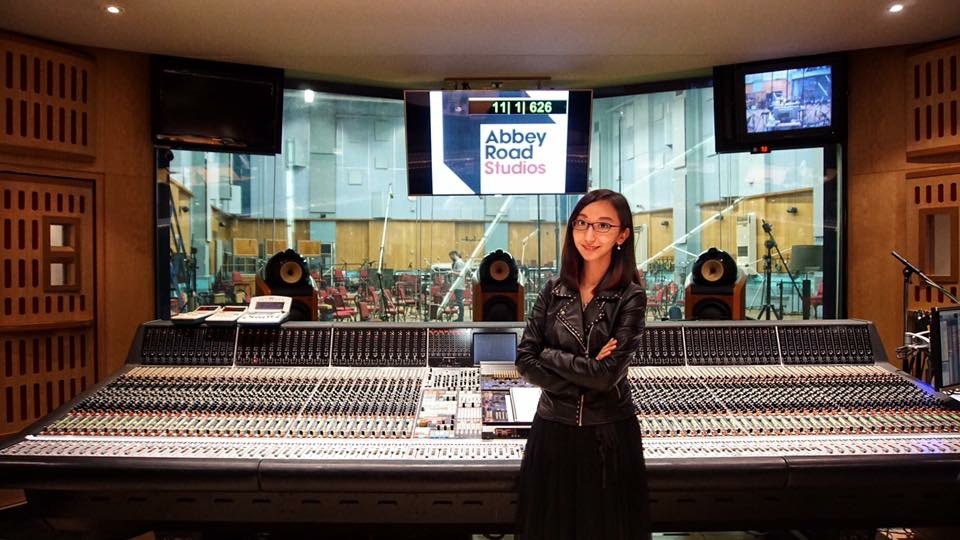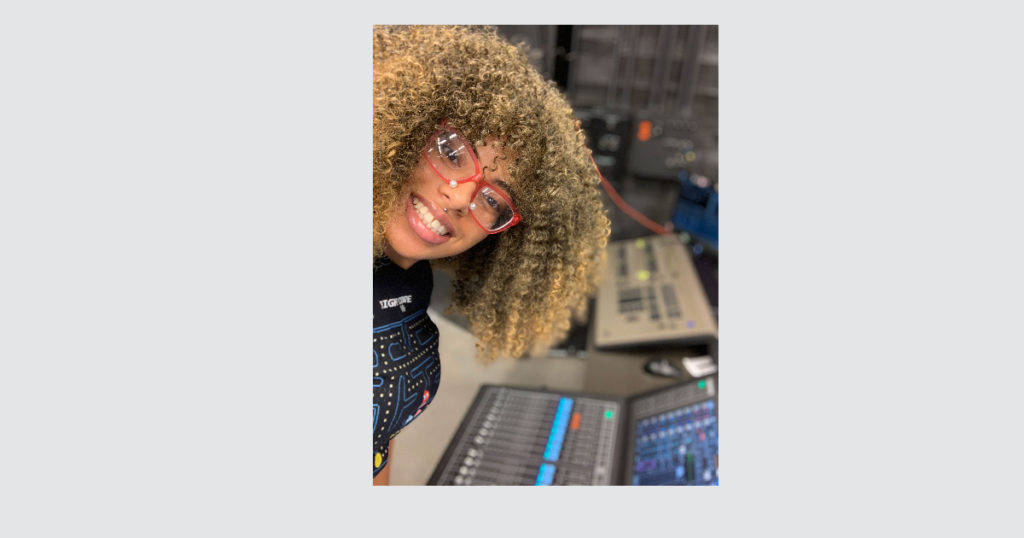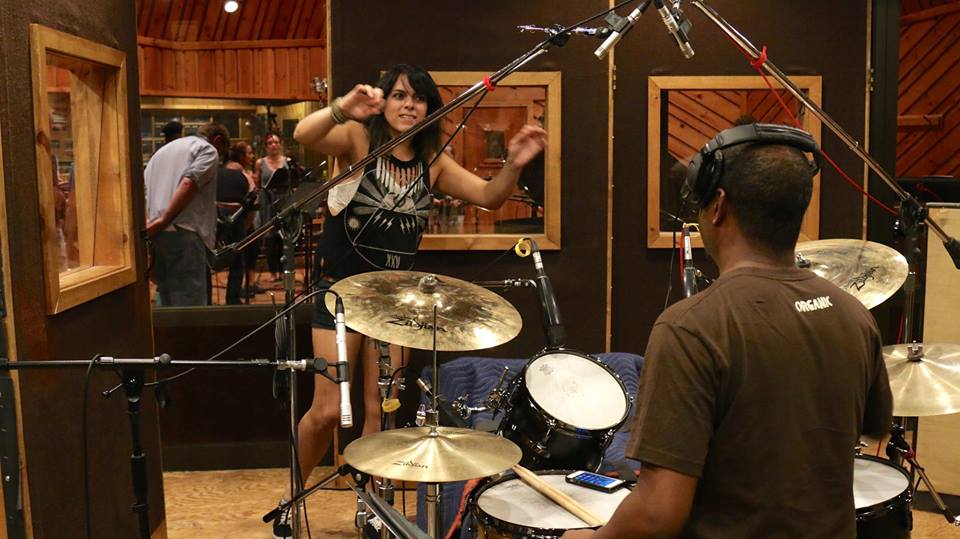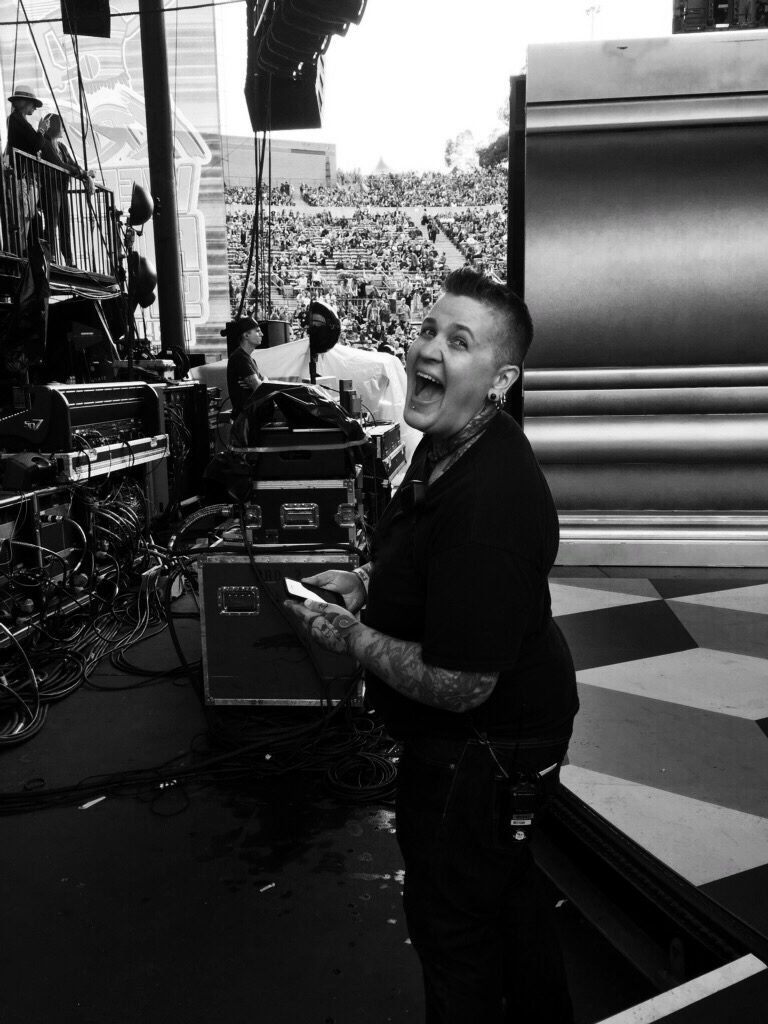Fei Yu is a Chinese award-winning music producer, music supervisor, music editor, and recording engineer. Fei’s ability to seek education ahead of trends has helped her become a one-of-a-kind (in the world!) music & film industry professional. Fei has worked with elite Western artists and composers (Andrea Bocelli, Hans Zimmer, Lorne Balfe, Matthew Margerson, Tyler Bates, Rupert Gregson-Williams) and popular Chinese artists (Lu Han, Li Yifeng).
Fei grew up playing piano and went to Beijing Film Academy to study composition and music recording. When she graduated in 2010, she was recruited by the China Film Group. “I was really lucky because 2010 was a big, big Chinese movie year. China Film Group is a national company, and so all of the big movies at the time that they invested in were doing the post-production in our company at that time. From that year, the Chinese box office started booming – double, triple numbers,” she says.
Fei says of the three years she worked there, “I met with so many directors, so that’s how I started to build relationships with them. They used to work with me as their music editor.” But, Fei noticed communication problems between the directors and composers she worked with. Sometimes the directors would ask for creative music changes after the composer was done working, which meant it all had to be done with music editing. Fei recalls, “The director would tell me, I want this music shorter. Or, I don’t like this music. Or, could you change it a little bit? Or sometimes they told me, could you put some of the song here rather than the background music? Then it turns out, the score is not linked really well with the background music. So I noticed there were so many problems during this time. Maybe the communication is not very good, or maybe some of the industry process is not going really well.”
She recognized if a filmmaker could choose background music first (licensed music), the composer could write music that fit. But, they weren’t used to dealing with music licenses. “Everybody started to become aware how important publishing is, and to clear the license for the copyright. There were still not professional music industry people in China doing this kind of thing, so that’s why I started to see myself as a music supervisor.”
During her years at China Film Group, Dolby launched Dolby Atmos, which Fei also saw as an opportunity. She says, “Nobody knew how to record music for Atmos at the time, so that’s why I quit my job and went to McGill University (for a Masters Degree in Sound Recording). I’m trying to see how to make my career path a little bit longer, and trying to be a little bit ahead of the time.”
While she was at McGill, she became friends with Western composers. “I started thinking about how some of my composer friends were really, really, really good. They’ve been composing for more than 20 years, so they have experience, and their rate is reasonable as well.” She started recommending Western composers for Chinese work, starting with video games. “Games are a little bit easier because a composer doesn’t need to understand the dialogue. It’s not like you have to write your music to fit the dialogue unless you’re writing for in-game animation. Writing for game music – it’s actually easier. You have more freedom. And also their budget is really good. You have the budget for recording a real orchestra, a big orchestra as well. So that’s how I started with a lot of game composers first.”
Fei’s film career was able to pick up even with her time away because she had built relationships with the filmmakers. “Some of the directors I worked with at China Film Group heard I just graduated. They knew me before, and they trusted me. They came back to me for their future movies. That’s how I built my career, as well,” Fei says.
A year after graduating from McGill, she was asked to work on a Disney film, Born in China. Fei was a natural fit because she was bilingual, had experience as a music editor, and knew the director. “They needed a Chinese expert to work on it, so they got a Chinese director. The Chinese director couldn’t communicate really well with the Disney system, so that’s why he brought me on board because I used to work with him in China Film Group.”
Fei later spent some time working in Los Angeles, where she continued pairing Western composers with Chinese filmmakers. She says of the time, “the really famous composers in China were piled up with work. At the same time, when I lived in LA, so many composers approached me and they had a really good attitude – they wanted to know more about Chinese culture, and they wanted to be involved with Chinese projects. That’s why I started thinking maybe it’s a good opportunity and started to collaborate with foreign composers.”
Fei started her company, Dream Studios, to bridge the gap between the two cultures. “Music is a universal language, so we want to use music to bridge the gap in-between. I’m having full control of the quality of the music, so I provide a really good service for the director. After one or two times trying this method, all of the directors felt comfortable. They don’t feel the language barrier because I’m speaking Chinese, and they also feel like the Western composers put in the effort. The Chinese composers were super busy, having 10 or 20 movies every year. That’s a lot. They’re working really hard and they just don’t have time,” she says.
Fei sees her ability to speak both languages as an advantage, as well as her music and audio background. “I’ve learned composition, sound editing, and all of these things that gave me more knowledge than my peers.”
There are challenges working with cultural differences. “I seldom do comedy with Western composers because I do notice they can’t understand why people are laughing here,” Fei says. “Or, sometimes suddenly, we’re having traditional Chinese music, and they don’t understand why people are laughing at that. Most of our movies are romantic movies or big action movies. The Chinese composers could understand more about the laughing points. With Western composers, there is a little bit of a language barrier, there’s a little bit of a culture difference. But especially for me, because I’m working with Western composers, we need to have a lot of communication with each other. I have to explain what a director really wants. So that’s why, for comedy, I will definitely put in more energy and more time to communicate with them.”
She says of her demeanor working with composers and filmmakers, “I’m never having a really bad attitude towards them. I’m always trying to be patient, trying to be nice, but also solving problems. I’m still trying to learn it because sometimes I’m really frustrated and sometimes you don’t get the respect that you should get. I’m still trying to keep calm, and I’m still trying to be nicer.”
One of the challenges of her job is when a composer or filmmaker is unhappy, and she is responsible for the communication between them. “We are under pressure for work because they have deadlines approaching, especially at the very end when they need to deal with the picture changing. Sometimes directors just say, just copy the temp music, just do exactly what the temp music is doing. So the director doesn’t give the composer enough space to have freedom for the creative side.” She says of working through these situations, “They have made me get stronger. I know next time if I am working with a new composer and they are having the same reaction, I know how to deal with a situation.”
For Fei, completing the job is important even in a difficult situation. She says of quitting, “Maybe I’m also destroying my personal relationship with a director, so that’s why I like to at least finish the project. Then next time, I will have my own choice if I still want to work with them or not.”
Fei has found pros and cons to being a woman in the industry. She believes some clients show better manners towards her because of her gender. As a con, Fei says, “In this industry, especially in China, there are so many who are more experienced than me. At the very beginning, they may hesitate or have some questions from what they see of me just as a female, but once we work together, we build trust.”
Tips on being a music editor
“First of all, if you want to be a music editor, you have to have a really good music collection with many different kinds of music. Whenever you watch movies or whatever, you have to know how to classify all of the music. Like, this is funny music, or this is romantic music, or this is quirky music. You need to be really organized, and listen to as much music as you can.
When you’re working with composers, you need to have a really positive and a good attitude and need to be super-efficient at everything.
As a music editor, you need to have a really good memory for the picture. You need to know where to put the music, you need to know where they change the music because you are helping to conform the music to picture changes. Also, you need to have a really good understanding of the music, so you could crossfade or do edits really well, like a composer.”
Find More Profiles on The Five Percent
Profiles of Women in Audio



